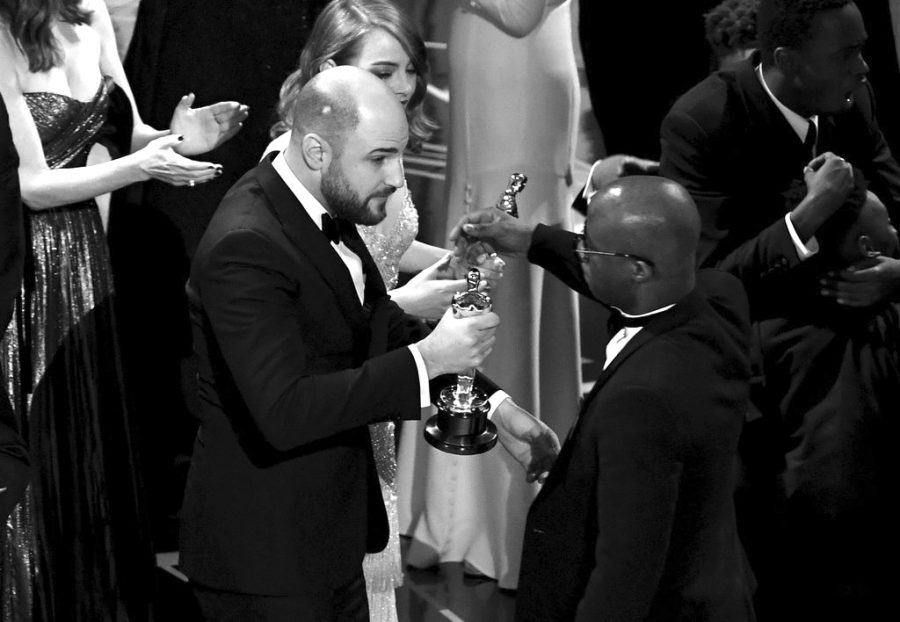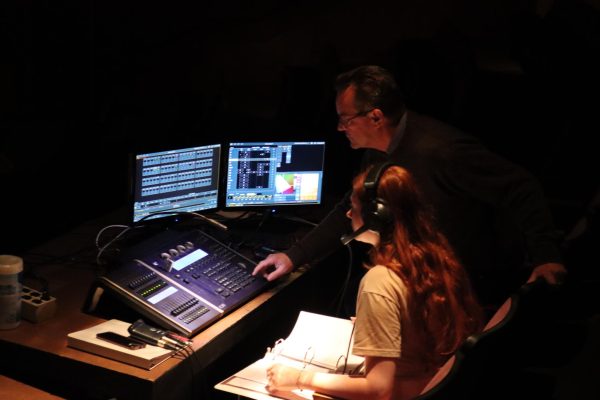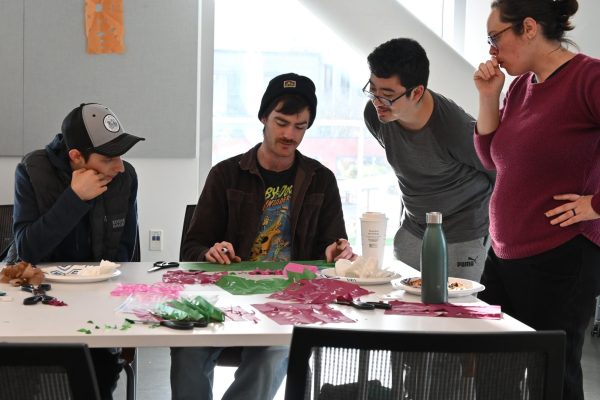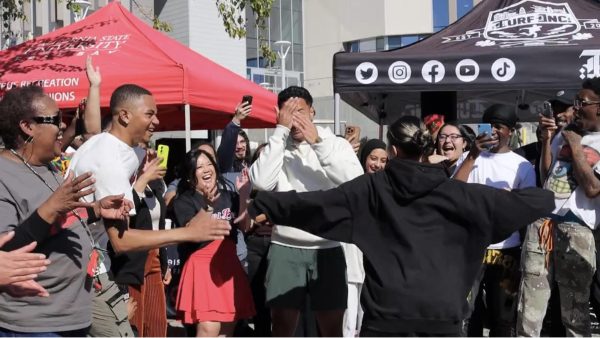Oscar flub just one flaw in show
As I watched the cast and crew of “La La Land” accept the best picture award at the 89th Academy Awards on Sunday, I was mad.
I thought about how African Americans won both best supporting actress, Viola Davis for “Fences” and best supporting actor, Mahershala Ali for “Moonlight.” And yet all of the other major awards went to white people, and the best picture award was just the cherry on top.
Then confusion broke out. Guys with headsets bombarded the stage fumbling with envelopes and then it happened. In true Steve Harvey fashion, presenter Warren Beatty announced he had the wrong envelope and “Moonlight” was actually the best picture, not “La La Land.” The cast and crew of “La La Land” seemed stunned but graciously passed on the award to the “Moonlight” crew.
I couldn’t help but think, what if the roles were reversed? What if “Moonlight” won first only to be corrected with “La La Land?” It would have been chaos and there definitely would have been a racially-charged backlash.
Instead, the crowed was shocked, and it turned into a great ending for a cast and crew primarily made up of African Americans. Finally, a big-time award was given to people of color led by Barry Jenkins, who grew up black and gay in Miami.
“I felt so bad for the ‘La La Land’ people,” Jenkins told reporters following the award show. “I don’t know what I would have done if I was put in that position, but it showed how professional they are.”
Then I thought of Nate Parker and his directorial debut in last year’s “Birth of a Nation,” a film based on Nat Turner who led a slave rebellion in Virginia in 1831. His film was critically acclaimed and praised until a few days before its debut in Oct. 2016, when allegations surfaced against Parker and a college classmate, who were accused of raping a fellow student in 1999 while attending Penn State University. Turner was eventually found innocent but when details surrounding the more than 16-year-old case came out, critics and supporters jumped off the bandwagon, several denouncing the film publically.
On the other hand, there’s Casey Affleck, who won best actor for his role in “Manchester by the Sea.” A few weeks before the award show, several news articles surfaced that Casey, brother of Ben Affleck, was accused of sexual harassment by two women who worked on the 2010 film “I’m Still Here” with him. According to The Boston Globe, the lawsuits were eventually settled out of court and Affleck was not charged.
Where was the backlash? Where were the critics denouncing a white male actor who paid his way out of a sexual harassment case? Unlike Parker, Affleck still went on to nab the top individual award for male actors, but it didn’t come without controversy.
B.J. Novak, best known for his role as Ryan Howard in the American version of the television show “The Office,” took to Twitter to express his dismay, “Can we check Best Actor again.”
Constance Wu, who stars on ABC sitcom “Fresh off the Boat,” went even further on her Twitter account. “Boys! BUY ur way out of trouble by settling out of court! Just do a good acting job, that’s all that matters! bc Art isn’t about humanity, right?”
Some B-list celebrities also spoke out, but the general lack of backlash shows just how divided we are racially as a country and world. So while the PricewaterhouseCoopers — the international firm responsible for the awards — stole the show with their envelope mistake, it was still race that took center stage.












